Simply María
Audience Development and Community Based Theatre
The revival of Simply María or The American Dream took place at Casa 0101 in Los Angeles April 28–May 14, 2017. It was the thirtieth anniversary of the first play ever written by Chicana playwright Josefina López when she was just seventeen and a temporary resident through an amnesty program. The play chronicles her experience as a young Mexican American girl (an autobiographical María) struggling to find her identity, how María’s parents eloped in Mexico, crossed the border illegally, and established themselves in East Los Angeles. María was born hoping to achieve the so called American Dream. The one act play, written in the typical agit-prop style of El Teatro Campesino, is a strong condemnation of machismo and the Catholic Church as seen through the eyes of a seventeen- year-old girl.
Written in the program the question was: “Why Simply María, why now?
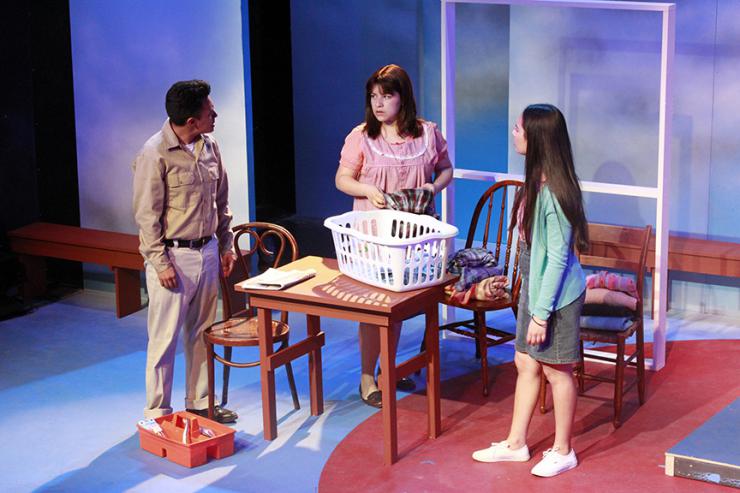
López decided that if the male-dominated, sexist Chicano theatre movement was not going to satisfy her desire to act, she would take matters into her own hands.
But first some background. The work is autobiographical: Josefina López was born in San Luis Potosi, Mexico, in 1969 and brought to this country illegally at age five settling with her family in the same Boyle Heights where Casa 0101 stands. According to noted theatre historian Jorge Huerta, “she started grammar school the following year and thus began the process of ‘Chicani-zation’ in the school system and in this society. From her first day in school, López knew that although her parents had green cards, she was undocumented and therefore lived in constant fear of being deported.”
In the introduction to López’s anthology Real Women Have Curves and Other Plays, Huerta notes that López was influenced by Luis Valdez and El Teatro Campesino and while Valdez’s plays were an inspiration to the young playwright, it also inspired her emerging feminism. As she searched for a monologue to perform, López discovered that Valdez’s female characters “were very flat—all mothers and girlfriends.” It is important to remember that López was studying acting in high school with the intention of becoming an actress. Like many female actors who become playwrights, López decided to create her own vehicles to perform. If the male-dominated, sexist Chicano theatre movement was not going to satisfy López’s desire to act, she would take matters into her own hands.
And thus began her exploration into feminist drama written by, for, and with Chicanas. In truth all of López’s plays are autobiographical in nature. When Frida Kahlo was asked “why do you always paint yourself?”, her answer was “I paint what I see.” López is a writer deeply rooted in her community and for the past seven years Casa 0101 has entered into a “collaborative” relation with the Building Healthy Communities initiative in Boyle Heights, a working class Chicano neighborhood in East Los Angeles. The initiative calls for an “investment in youth” campaign that creates opportunities and a positive “ecosystem” where youth become healthy contributing members of society. That is why there were twenty young women and men from seven local schools cast in the play.
According to Co-Director Corky Dominguez,
Josefina gave us permission if we wanted to set it in the present. The youth voted to keep it in the 1980s period, the time when she wrote the play. We created a wall of inspiration with photos both from the time period and images mentioned from the play—people, places, and things. We had conversations around theme, topics, and issues. What jumped out was “immigration.”
According to the director, it goes without saying that the recent election of Donald Trump brings a great deal of fear among Latino youth regarding undocumented family members. Apparently within the cast, they had some youth and/or their parents who are not documented.
Simply María, written thirty years ago…is a great example of not only training future actors and designers in the craft of theatre, but also developing a sense of theatre in the community.
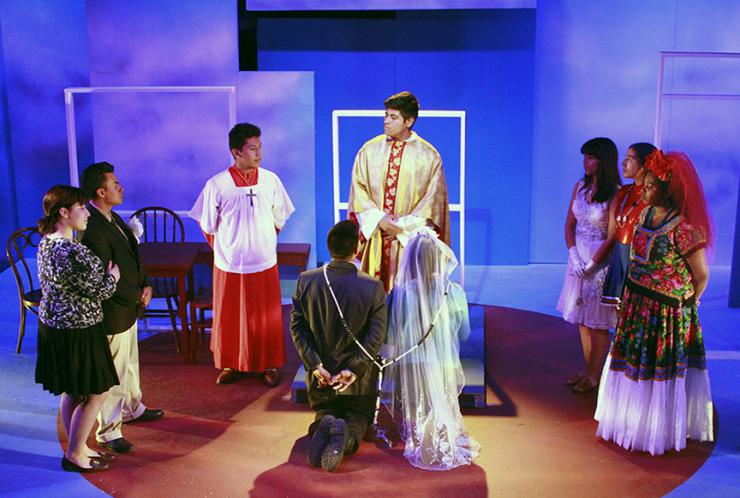
Another important theme is “identity,” especially the transition period from a girl to a young woman. Although most of the youth understood the concept of machismo they didn’t have firsthand experience. Josefina and Corky talked to them about their own experiences growing up under a traditional patriarchal society.
Simply María, written thirty years ago, resonates strongly with youth in Boyle Heights. In my opinion this is a great example of not only training future actors and designers in the craft of theatre, but also developing a sense of theatre in the community. And as for audience development, I saw the smiling faces of all the proud parents who came to see their children perform and were exposed to a play that speaks to their culture.


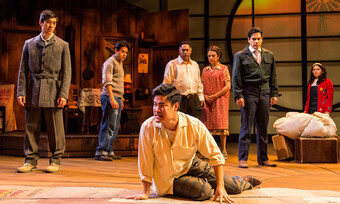

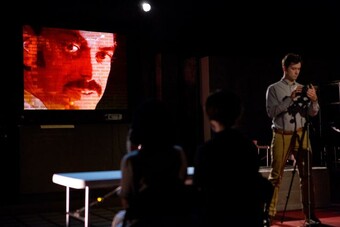

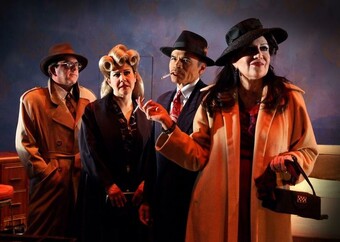
Comments
The article is just the start of the conversation—we want to know what you think about this subject, too! HowlRound is a space for knowledge-sharing, and we welcome spirited, thoughtful, and on-topic dialogue. Find our full comments policy here